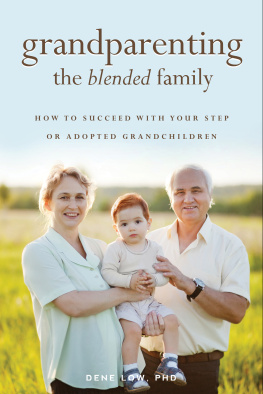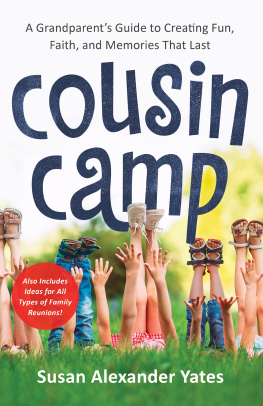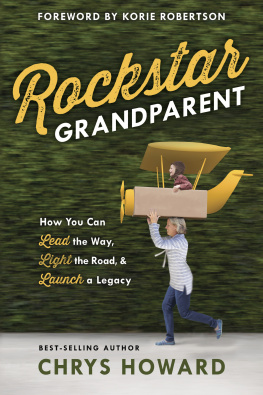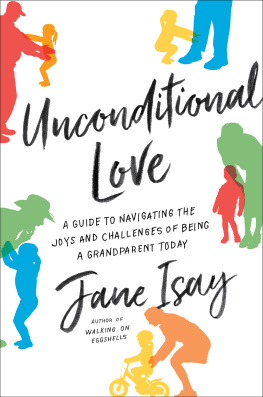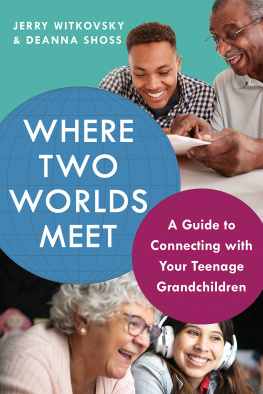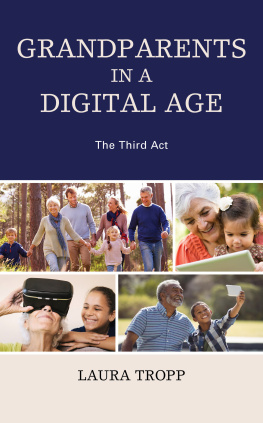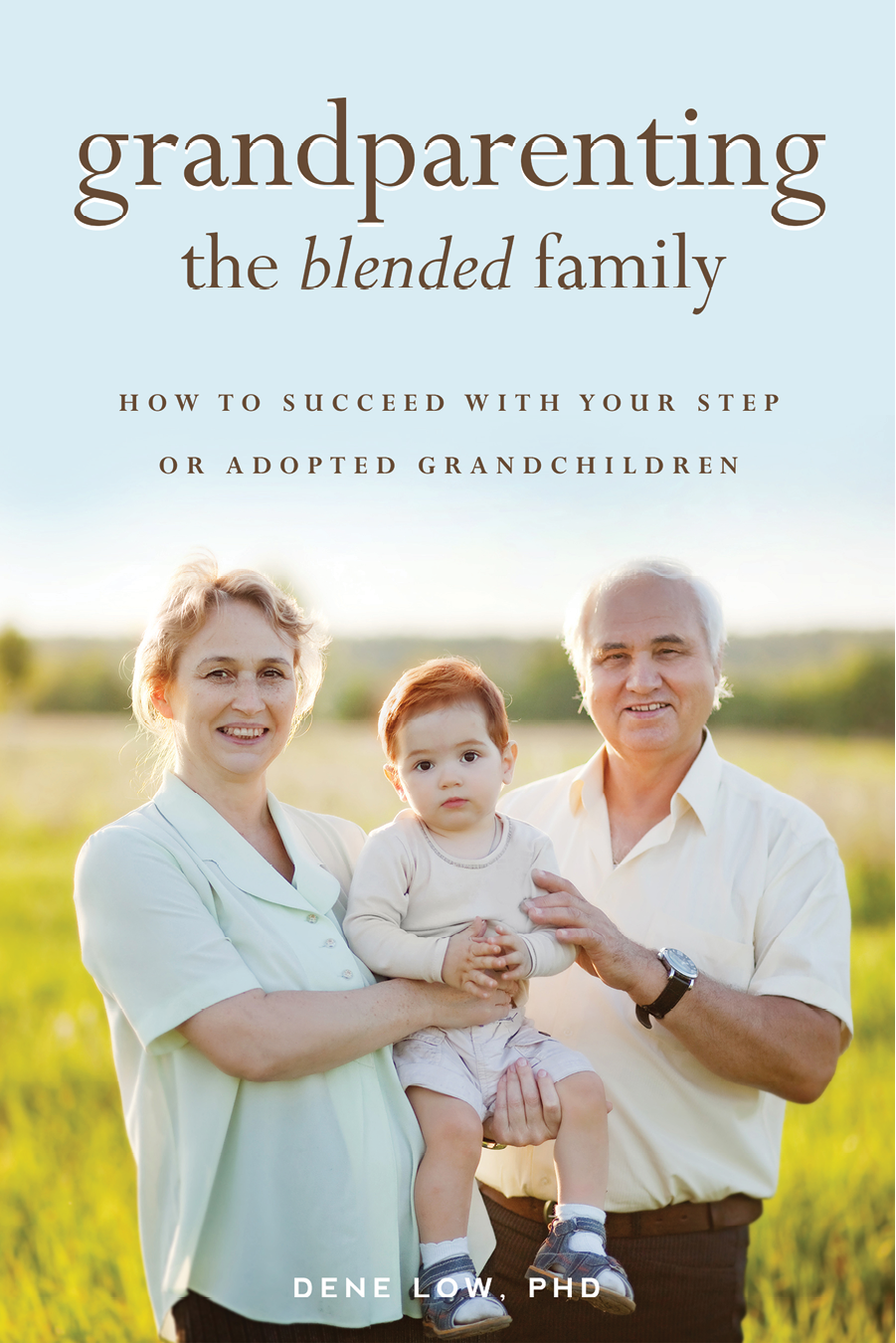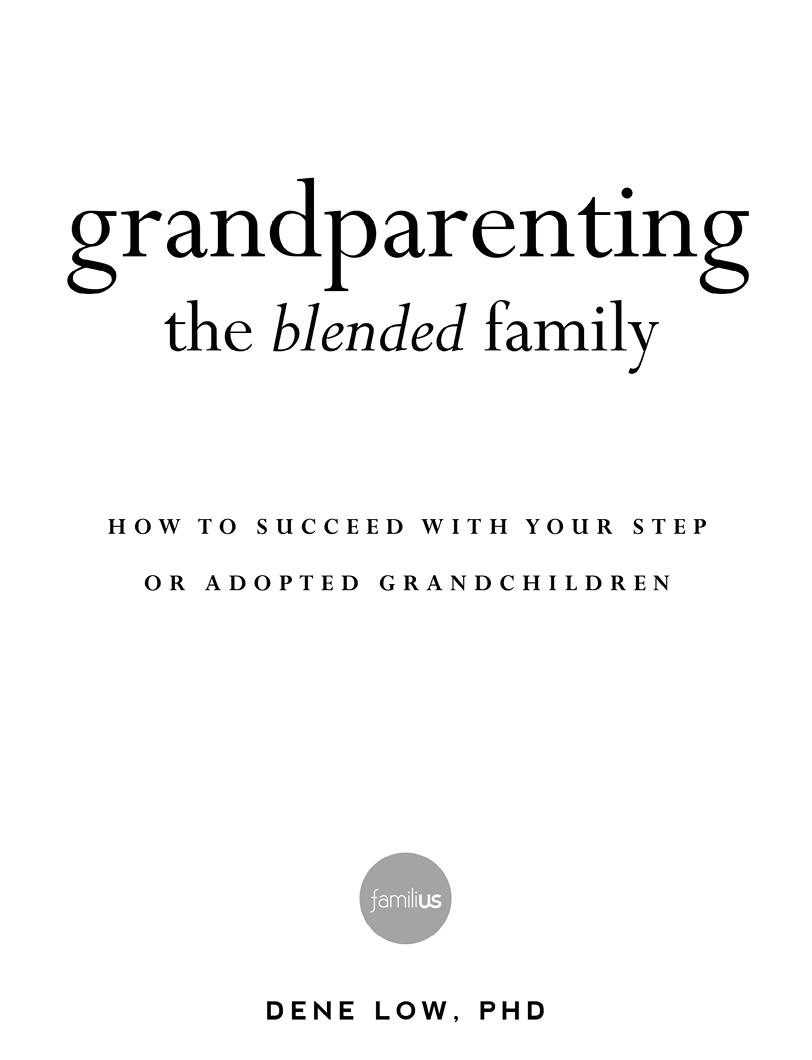Introduction
I love being a grandparent and all the various roles that come with that title. My role shifts constantly as grandchildren are born, grow up, or come into the family through marriage, re-marriage, or adoptionboth formal and informal. Talking with other grandparents gives me ideas for what to do to be a successful grandparent. Their experiences help me, which is how the idea for this book was born. I want to share with you the stories of everyday grandparents who do remarkable things to help their grandchildren. This book is meant to be a resource for inspiration and encouragement for all of us as grandparents.
What does it mean to be a grandparent, especially today, with all the many variations of relationships that come about because of blended families? There are normal grandparents, step-grandparents, adoptive grandparents, and adopted grandparents, and as many combinations of grandparenting as there are people and types of families.
In many cultures, stories of grandparents conjure up images of wise and loving elderly people worth revering, caring for, and going to for comfort and advice. Didnt Little Red Riding Hood take her grandmother goodies, and didnt she risk her life to save her grandmother? Stories about grandparents abound in our own culture, but the stories grandparents like the best are about experiences with grandchildren. We tell them all the time as we share our delight in our grandchildren with others. For example, my friend Melissa told me that she took her three-year-old grandson outside one cold spring morning to work in the garden. He was reluctant to wear his hoodie because the sun was shining so brightly, but after they were outside for a few minutes he was shivering. He complained, Grandma, Mr. Sun isnt doing his job. Cute, right? And then there are the people who whisk out photographs of grandchildren as soon as the word grandparent is mentioned. Maybe you are one of those people. Good for you. That means that you adore your grandchildren, and they will know it.
After interviewing more than thirty people for this book, I am left in awe of the extraordinary lengths so many people go to, in both traditional and blended family situations, to reach out and just plain love the children who come into their lives under so many varied circumstances. The truth is that most of the time we dont have any control over how grandchildren come to us, and we may find ourselves filling roles that we never planned on filling. For example, our son remarried after a divorce and not only gave us the gift of a precious new daughter-in-law, but also gave us two new darling granddaughters to add to our collection. And recently, our daughters best friend, whom we welcomed into our family years ago when she and my daughter were teenagers, came to see us to tell us that she and her husband are adopting a little girl. Now we have another granddaughter to look forward to welcoming into our family. The addition of these children into our family is a happy thing. Our lives are richer than we could have ever imagined.
In todays society, relationships can be shuffled and reshuffled, and even new marriages may dissolve and new relationships may form. T hink of your own acquaintances who are on their third, fourth, or even fifth marriages. When worlds fall apart and are recreated, children often feel cast adrift. They need the stability that grandparents can give them.
According to the 2012 US Census Bureau statistics, over half of all marriages end in divorce, but that means that nearly half of all marriages stay together, making for all kinds of interesting relationships. Another statistic from the Census Bureau indicates that many divorced people, widows, and widowers remarry. In 2012, US Centers for Disease Control puts that number at 7080 percent, depending on economics, race, and religion. It would seem reasonable to assume that many of those who remarry have parents of their own (us), which means its more and more likely that at some point in our lives our children will put us in the position of being grandparents in some form or other.
Often we know how to do something because weve seen someone else do it, or at least heard stories about it. Stories of grandparents in fiction and reality shape how we behave as grandparents. Unfortunately, there arent nearly as many stories about step-grandparents or non-traditional grandparents to help us out because the phenomenally high divorce rate is a fairly recent issue, leaving us with fewer stories to go on. We may feel like we are left floundering in an unknown sea with only the tiniest rudder to guide us.
However, this book gives us reason to rejoice. It is a collection of stories of real people who are making a success of being grandparents and grandchildren in many varied relationships and making a difference in their families. This book presents us with ideas that can help us map out our own course as we see how others have done it. From all the interviews I conducted for this book, I learned that there are certain principles that work. These principles include the time spent with grandchildren and the effort put into maintaining relationships, being non-judgmental, being there, and being loving, plus whatever variations on these principles that might be necessary or desirable at different times.
Another principle is humorthe kind that allows us to meet whatever circumstances that come along with grace, the kind that defuses an awkward moment, or the kind that softens a teaching moment. For instance, at the gym I overheard two elderly gentlemen discussing their grandchildren. The first grandfather said, My grandson came to me and asked me to buy him a car. The second said, What did you tell him? The first said, I told him that Id be happy to buy him a car if he would make the monthly payments, buy the gas, and pay for the insurance. There was a pause before the second asked, And what did he say to that? The first said, He said, Aw, Grandpa, I might as well buy the car myself. The two grandfathers laughed.
I am in awe of the extraordinary things people have done to benefit their familiesthings that they see as a normal part of their liveseven as Ive become more grateful for the things my own grandparents did for me. In this book, we will meet some of these extraordinary people as they tell their own stories. At the end of the book are some short biographies about these people so you can get to know them and keep them straight as you read about them. I interviewed people who came from a variety of backgrounds, races, and culturesfrom many regions of the United States as well as other countriesand found that the same principles hold true for nearly everyone. People are people all over the world. Each one of them had essentially the same things to say about the importance of time, effort, and attitude in maintaining relationships. As we read about how these people succeeded, my hope is to not only provide us with a rudder, but also the wind in our sails to set out with more confidence on that uncharted ocean called grandparenting.
Chapter One
Grandparents Can Save the World
Its true. Grandparents can save the worldor at least someones world.
Throughout the years, grandparents meet with all kinds of joys and sorrows. Often, there are life tragedies that affect every person in the family to some degree and that are also part of living. Altered health, death, grief, legal concerns, visitation rights, loss of familiar surroundings, altered traditions and routines, changed familial relationships, financesall have long-term repercussions on families. Grandparents can play a major role in bringing about stability, comfort, and even victory.

